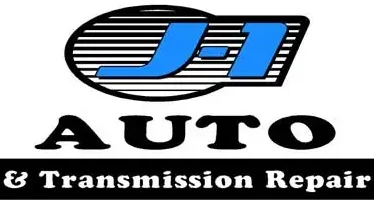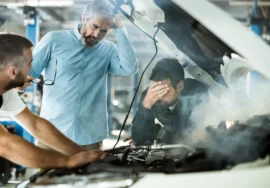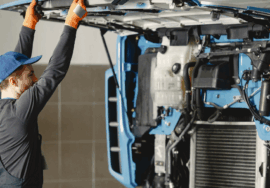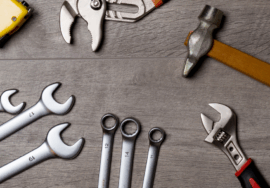
Understanding the Cost Differences Between Transmission Repair and Replacement
transmission maintenance automotive solutions gear shifting running smoothly auto body repair
When vehicle performance declines due to transmission issues—like delayed shifting, grinding noises, or slipping gears—owners are often faced with two choices: fix the damaged parts or install a new or rebuilt unit. Understanding the cost differences between Transmission Repair and Replacement goes beyond just numbers—it involves weighing your car’s age, condition, and future reliability.
What Does Transmission Repair Involve?
Transmission repair refers to the process of identifying and fixing specific malfunctioning components within the system. Unlike a full replacement, repair work aims to preserve as much of the original transmission as possible, targeting only the defective parts.
These types of fixes may involve replacing worn-out seals, repairing electrical components, or addressing internal wear. In many cases, transmission repair can be relatively straightforward, especially when issues are identified early.
Repairs are typically recommended when the damage is localized, the overall transmission is still in good condition, and the vehicle hasn’t experienced widespread internal failure. This option may be ideal for drivers who have maintained their car regularly and are dealing with minor wear or part malfunction.
When Is Transmission Replacement Necessary?
Transmission replacement involves removing the old unit and installing a new, used, rebuilt, or remanufactured one. This approach is often recommended when the damage is widespread or when the original transmission is no longer functioning properly despite previous repairs.
Transmission replacement ensures that the car receives a fully functioning transmission system. Depending on the type selected—new or remanufactured—it can offer high levels of reliability and extended service life. It’s often considered when the vehicle is still valuable or needed for long-term use, and the goal is to restore performance and dependability.
This route is more comprehensive and time-intensive than repair, and it requires careful decision-making based on a variety of mechanical and personal factors.
Key Considerations in Making the Decision
1. Extent of Damage
One of the most important factors to evaluate is how widespread the internal damage is. If only a single part or a limited number of components are failing, repairs are often a viable and sensible choice. However, if the damage has compromised the integrity of the entire system, replacement is usually the safer and more reliable long-term solution.
2. Age and Mileage of the Vehicle
Older cars with higher mileage may not justify a major replacement project, especially if other systems are nearing the end of their useful life. In such cases, a repair may be more reasonable—if only to prolong the car’s usability until a full replacement becomes necessary or a new vehicle is purchased.
On the other hand, a newer vehicle with relatively low mileage might benefit more from a transmission replacement, as it could extend the life of the car by several years and preserve performance and resale value.
3. Maintenance History
A vehicle that has received regular maintenance—like timely fluid changes and inspections—is more likely to benefit from transmission repair. If a transmission has been well cared for but develops a minor issue, repair may be sufficient.
Conversely, if there’s a history of neglected maintenance, internal wear may be significant and widespread, making replacement the more dependable option.
4. How Long You Plan to Keep the Vehicle
Your future plans for the vehicle can also help guide your decision. If you plan to keep the car for many more years, replacing the transmission might be worth the investment to ensure reliability. If you’re planning to upgrade or sell the vehicle soon, a repair may suffice to keep it running in the short term.
Risks and Reliability
Repairs offer a short-term fix and are often less intrusive, but they can carry the risk of incomplete resolution if other underlying issues go undetected. It’s possible for new symptoms to appear shortly after a repair, especially if only a few parts were replaced in an aging system.
Replacement, on the other hand, is more comprehensive and addresses the root of the problem. It offers peace of mind in terms of long-term performance and often comes with longer service guarantees from mechanics or manufacturers, depending on the source of the transmission.
This is especially important when the vehicle plays a critical role in your daily routine, such as commuting or work.
Diagnostic Evaluation
Before making a decision, a professional inspection and diagnostic scan should always be performed. This process will help pinpoint the exact issue and assess whether it’s localized or part of a more significant problem. Accurate diagnostics form the foundation of a smart and effective decision between Transmission Repair and Replacement.
Technicians may perform visual inspections, electronic diagnostics, and test drives to gather a full understanding of the issue. These assessments help determine whether the problem stems from an isolated mechanical failure or a system-wide breakdown.
Common Misconceptions
Many car owners hesitate at the thought of replacing a transmission because it seems like the most drastic and expensive option. However, replacement can sometimes be the most practical and cost-effective decision in the long run.
Likewise, some believe that a quick repair is always the better route, especially for older vehicles. But short-term fixes on failing systems can lead to recurring issues and eventual breakdowns, costing more in repeat repairs and lost time.
Understanding the long-term implications and performance differences is key to making a decision that’s not just based on upfront convenience, but also on future dependability.
What to Ask Your Mechanic
When discussing your options with a technician, consider asking the following:
How severe is the damage?
Is the issue localized or widespread?
Will a repair guarantee long-term reliability?
Are there any risks involved with repairing only part of the system?
What kind of performance can I expect from a replacement?
Are warranties offered with either option?
A reputable mechanic will take the time to answer your questions thoroughly and provide a detailed breakdown of your vehicle’s condition. Having this information helps you make a well-informed decision about Transmission Repair and Replacement.
Final Thoughts
Deciding between Transmission Repair and Replacement involves more than just choosing the cheaper or quicker option. It’s a matter of understanding your vehicle’s condition, assessing your driving needs, and evaluating long-term performance goals.
Repair can be a practical solution for minor issues and newer transmissions with targeted problems. Replacement, meanwhile, is often the better choice for older or extensively damaged systems, especially when you need long-lasting reliability.
The most important step is to consult an experienced transmission specialist and weigh your options with both short-term budgets and long-term vehicle use in mind. With the right approach, you’ll make a choice that supports both your car’s health and your peace of mind.








